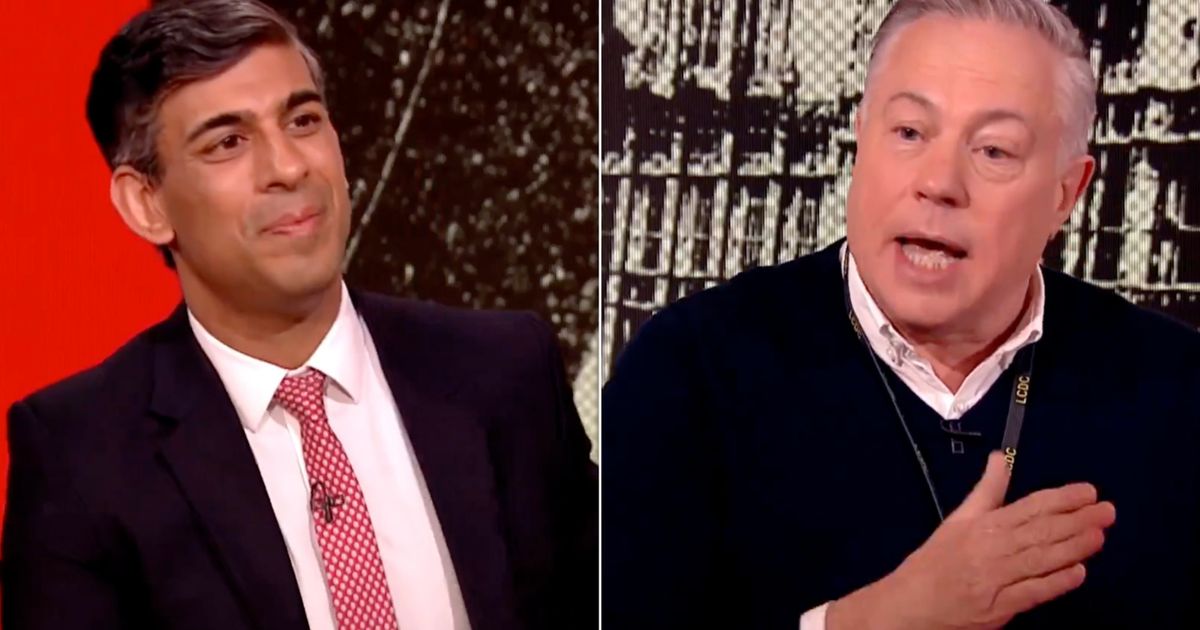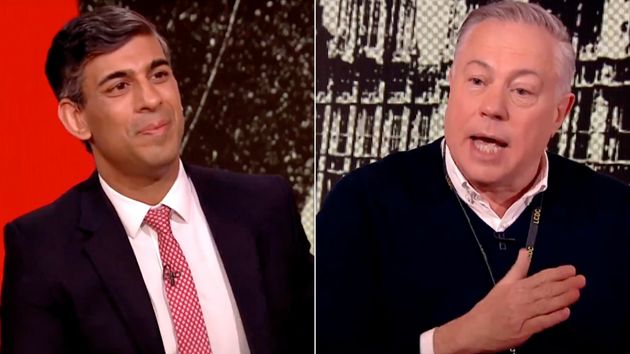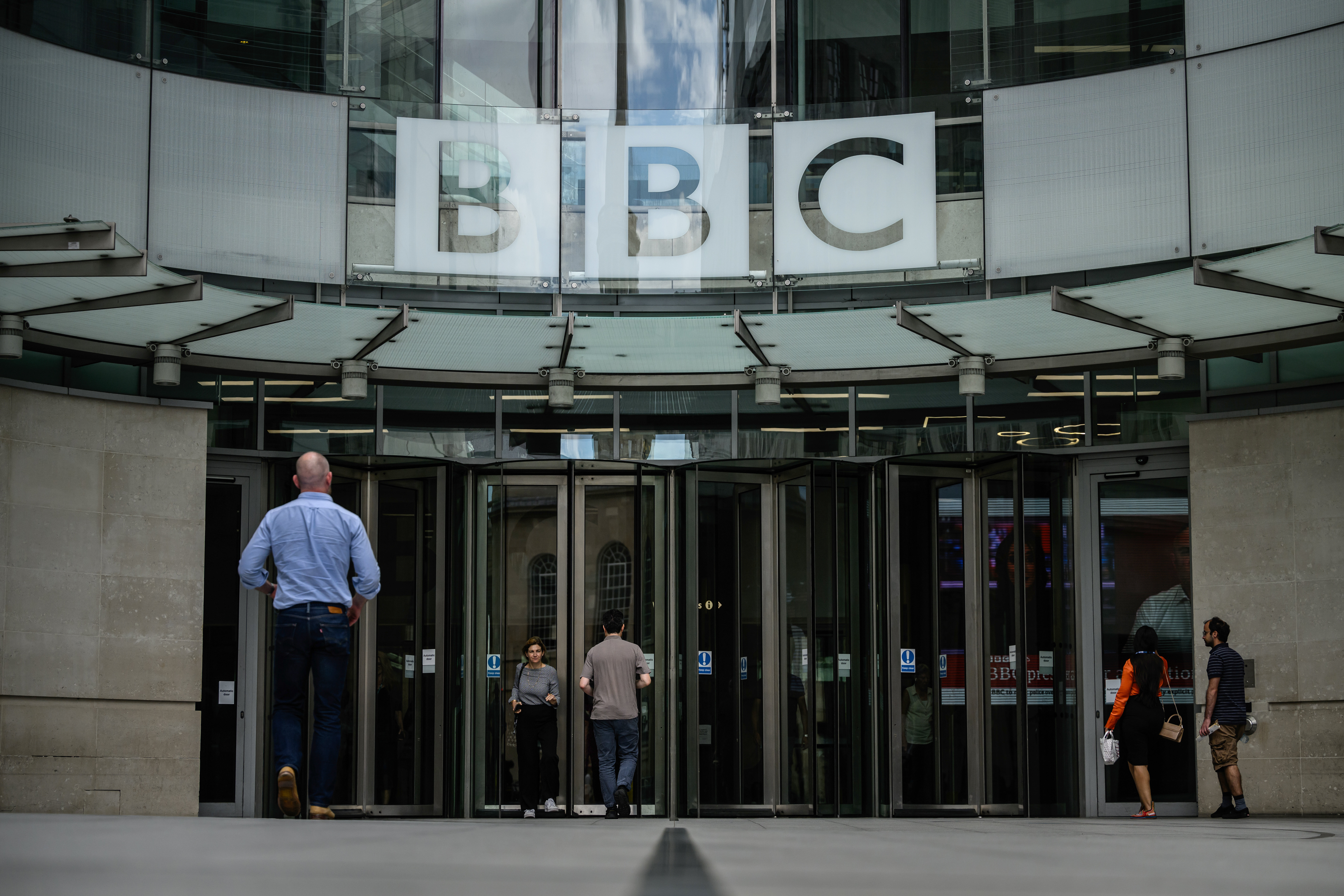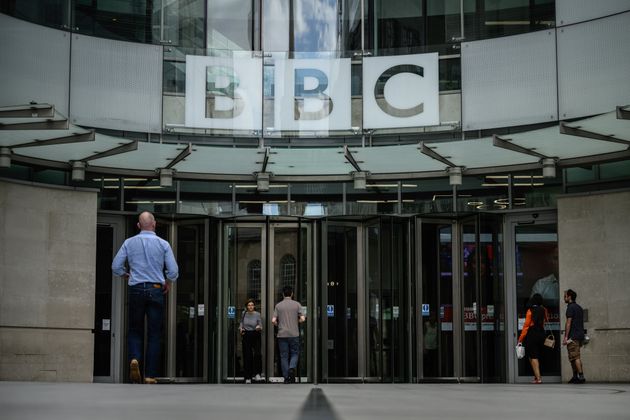The BBC on Sunday suspended a member of staff following an allegation in The Sun newspaper that one of its star presenters paid a teenager to pose for sexually explicit photos. Neither the star, nor the youth, was identified.
The Metropolitan Police said on Monday there is “no investigation at this time” into the claims.
Later on Monday, the BBC reported on a letter from a lawyer acting for the young person claiming that The Sun’s allegations are “rubbish” and that “nothing inappropriate or unlawful has taken place between our client and the BBC personality”.
The crisis deepened on Tuesday when the BBC’s news division reported that the male presenter had sent abusive messages to a second person, aged in their early 20s.
What are the initial allegations?
The Sun newspaper on Friday reported allegations that the male presenter allegedly gave the teenager £35,000 starting in 2020 when they were 17.
Though the age of sexual consent in the UK is 16, it’s a crime to make or possess indecent images of anyone under 18.
According to the newspaper, the family complained to the broadcaster on May 19, but the presenter was not immediately taken off air.
The mother told the newspaper that the teenager had used the cash to fund a crack cocaine habit.
The family had not requested payment for their story, The Sun reported.
What has the BBC said?
The BBC said in a statement on Sunday that it “first became aware of a complaint in May”, but that “new allegations were put to us on Thursday of a different nature” – a day before The Sun published its story.
The broadcaster said “the BBC takes any allegations seriously and we have robust internal processes in place to proactively deal with such allegations”. It said the corporation had also been in touch with “external authorities,” but did not specify whether that was the police.
“This is a complex and fast-moving set of circumstances and the BBC is working as quickly as possible to establish the facts in order to properly inform appropriate next steps,” the BBC said.
“We can also confirm a male member of staff has been suspended.”
According to a timeline published by the broadcaster, a member of the young person’s family walked into a BBC building on May 18 to make a complaint. The family member contacted BBC Audience Services the next day.
The BBC said it made two unsuccessful attempts – one email and one phone call – to respond to the complainant.
The Sun contacted the BBC seven weeks later on July 6 with different allegations, the broadcaster said on Tuesday, and senior management were informed for the first time.
“The events of recent days have shown how complex and challenging these kinds of cases can be and how vital it is that they are handled with the utmost diligence and care,” BBC Director General Tim Davie told reporters after the corporation published its annual report.
Davie, who said he had not personally spoken to the presenter, said the new information provided by the Sun on July 6 “clearly related to potential criminal activity”.
What has the police said?
The Metropolitan Police said on Monday the force had met BBC bosses earlier in the day and that officers were making further enquiries about the allegations.
The Met said in a statement: “Detectives from the Met’s specialist crime command met with representatives from the BBC on the morning of Monday, July 10. The meeting took place virtually.
“They are assessing the information discussed at the meeting and further enquiries are taking place to establish whether there is evidence of a criminal offence being committed.
“There is no investigation at this time.”
On Tuesday, it asked the BBC to pause its inquiries while specialist officers decide if there is any justification for a criminal investigation.
What did the young person’s lawyer say?
The BBC reported it had received a letter from a lawyer representing the young person involved in the story.
It wrote: “For the avoidance of doubt, nothing inappropriate or unlawful has taken place between our client and the BBC personality and the allegations reported in the Sun newspaper are rubbish.”
The BBC also reported “the young person sent a denial to the Sun on Friday evening saying there was ‘no truth to it’. However, the “inappropriate article” was still published, the lawyer said.
The Sun responded to this claim by stating: “We have reported a story about two very concerned parents who made a complaint to the BBC about the behaviour of a presenter and the welfare of their child.
“Their complaint was not acted upon by the BBC.
“We have seen evidence that supports their concerns. It’s now for the BBC to properly investigate.”
What is the second claim?
BBC News said on Tuesday it had been contacted by a second young person – unconnected to the first – who said they had been approached by the presenter on a dating app.
When the person, who never met the presenter, hinted online that they would reveal his identity, they were sent abusive, expletive-filled messages, the BBC said.
BBC News said it had verified that the messages were sent from a phone belonging to the presenter. It said it had received no response to the latest allegations from either the presenter or his lawyer.
Late on Tuesday, The Sun claimed the presenter allegedly broke lockdown rules to meet a young stranger from a dating site.
Why has the presenter not been named?
The male presenter has not been named by the Sun or any other outlets who know their identity, with the media having to balance the public’s right to know with the legal risks.
Unless there are any criminal charges, there will be two aspects of the law weighing heavily on newsrooms – defamation and privacy.
The law of defamation protects an individual’s reputation from the harm caused by lies. Identifying an individual and making false allegations against them that would lower them in the eyes of right-thinking members of society exposes the publisher to being sued if the claims are false.
The principle defence against defamation is that the allegation is true. But the burden of proof is on the publisher, and the bar is particularly high in sexual offence cases.
Two relatively recent cases have had a big impact on editorial decision-making when it comes to an individual’s right to privacy.
In 2018, Cliff Richard won a privacy case against the BBC over the broadcaster’s coverage of a police raid on his home following a false child sexual assault allegation, which has since tipped the balance in favour of privacy over a right to know.
Added to this, the Supreme Court, the UK’s highest court, ruled in 2022 that a person being investigated for a crime generally has “a reasonable expectation of privacy” until charged – turning what was an accepted principle into legal precedent.
In an email to staff on Monday, Davie said the BBC was taking the allegations “incredibly seriously”.
He added: “By law, individuals are entitled to a reasonable expectation of privacy, which is making this situation more complex.
“I want to assure you that we are working rapidly to establish the facts.”
What are BBC presenters saying?
Amid speculation on social media about the identity of the presenter, several of the BBC’s best-known stars spoke up to say it wasn’t them, including Gary Lineker, Rylan Clark, Nicky Campbell and Jeremy Vine.
The laws of defamation apply to social media as much as they do the media, but that hasn’t stopped some people accusing presenters without any foundation.
Campbell addressed the online speculation on the radio. On BBC Radio 5 Live, he opened his programme on Monday saying: “Thoughts with the alleged victim and family.”
He added: “It was a distressing weekend, I can’t deny it, for me and others falsely named.
“Today I’m having further conversations with the police in terms of malicious communication and with lawyers in terms of defamation.”
On his Radio 2 show, Vine did the same, saying: “I’m in that shortlist of BBC presenters who ended up being smacked around on Twitter yesterday and the day before. But what can you do? Are you going to tell me to take out 85 different lawsuits?”
On Tuesday, Vine suggested the star at the centre of the allegations reveal themself publicly.





 NEW: A voter asks Rishi Sunak why he isn’t getting the Navy to “tow” small boat migrants back to France
NEW: A voter asks Rishi Sunak why he isn’t getting the Navy to “tow” small boat migrants back to France 


